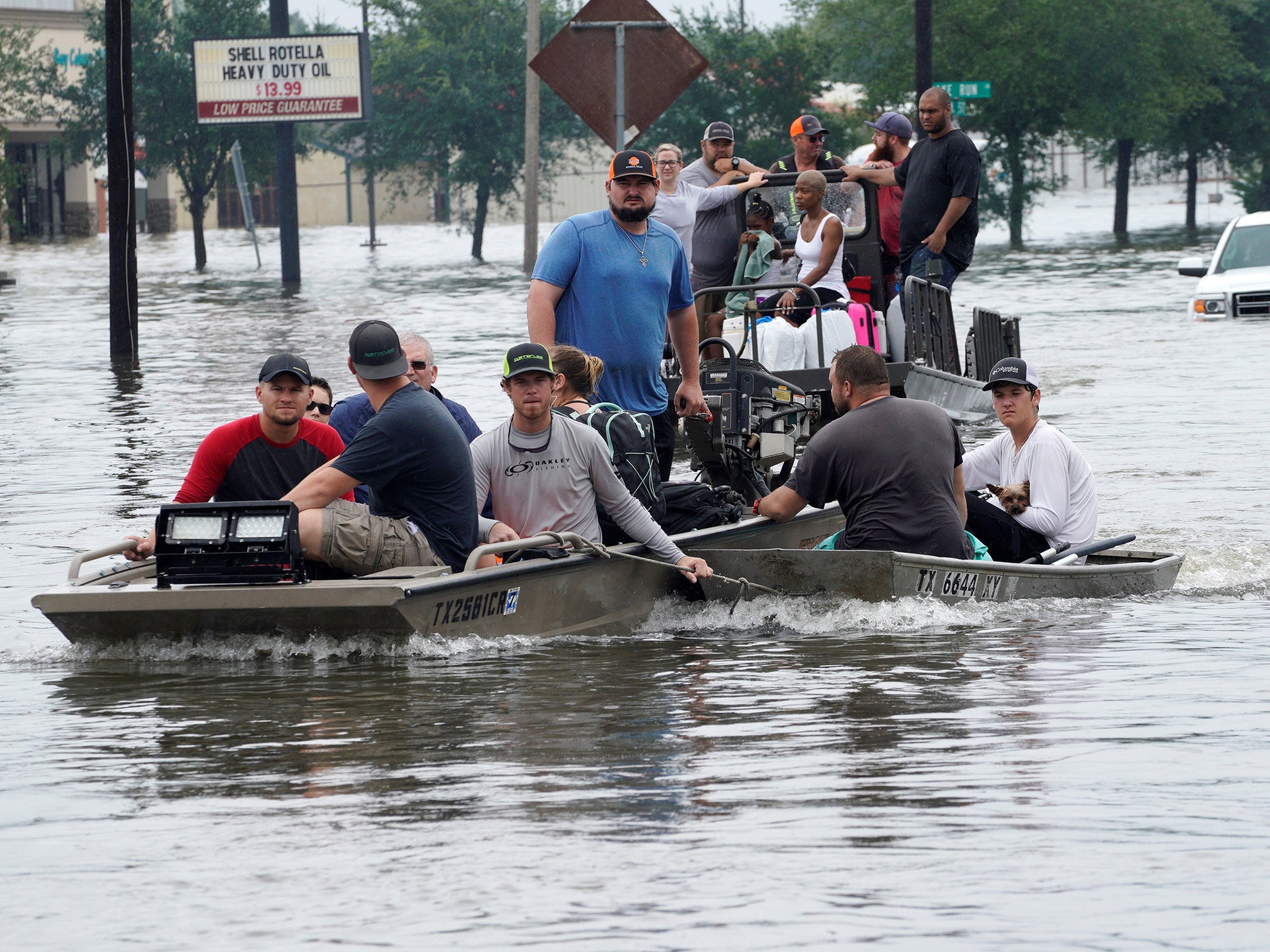Texans to be hit with new insurance law making it harder to win contested claims, just one week after Harvey
Harvey victims have until Friday to file a claim, or deal with new regulations that may make insurance companies less responsive

Your support helps us to tell the story
From reproductive rights to climate change to Big Tech, The Independent is on the ground when the story is developing. Whether it's investigating the financials of Elon Musk's pro-Trump PAC or producing our latest documentary, 'The A Word', which shines a light on the American women fighting for reproductive rights, we know how important it is to parse out the facts from the messaging.
At such a critical moment in US history, we need reporters on the ground. Your donation allows us to keep sending journalists to speak to both sides of the story.
The Independent is trusted by Americans across the entire political spectrum. And unlike many other quality news outlets, we choose not to lock Americans out of our reporting and analysis with paywalls. We believe quality journalism should be available to everyone, paid for by those who can afford it.
Your support makes all the difference.The embattled populations of southeastern Texas may soon encounter a new obstacle in their quests to rebuild their lives after Harvey when a new state insurance law that makes it harder for consumers to receive full claims goes into effect Friday.
The new law decreases the chances that an insurance company will be forced to pay claim delay penalties and plaintiff attorneys’ fees related to weather-involved claims — a protection that may discourage struggling households from pursuing legal action even if they think the insurance companies are offering less of a payout than they should. Under the new regulations, insurance companies will enjoy greater freedoms to push back on insurance claims, and the first wave of such claimants are likely to be coming from areas impacted by Harvey.
Residents reeling from Harvey now have until just Friday to assess the damages to their homes that may still be under water, and to notify their insurance company of nay damages if they want to avoid navigating that new law. After Friday, new legal restrictions will be in place that make things more difficult for consumers, and interest rates imposed on insurance companies to deter late payments will be cut nearly in half.
“Without this law, and as the law currently is until Friday, I think insurance companies would be more responsive to claims,” Kir Pittard, a Dallas attorney, wrote on Facebook of the new law. “After Friday, there won’t be the incentive because the penalty for delays have been reduced.”
To put it bluntly, a lot of residents in the impact area of Harvey may face a long battle ahead to replace the roofs torn off their homes from high winds, activists say.
"Insurance companies already had a lot of power, and the bill gives them a lot more power. As we know, too often insurance companies wrongfully withhold payments, they delay payments, they deny claims," Ware Wendell, the executive director of consumer watchdog group Texas Watch, told The Independent. "So, we're very concerned that people are going to have blue tarps on their homes instead of roofs."
Tropical storm Harvey — which made landfall late last week as a Category 4 hurricane — has inflicted between $10 billion and $20 billion in damages in the region, according to early estimates from analysts at JPMorgan Chase. That price tag is a significant chunk of insurance industry earnings, and is “slightly less” than a quarter of the entire industry earnings, according to CNBC.
But firms like JPMorgan, State Farm, Allstate, and Farmers Insurance are likely to only be responsible for wind and hurricane damages, since the federal government sells flood insurance to individuals. Those private insurance firms will also likely be responsible for commercial flood damages. An analysis indicated that the insurance responsibility for private firms will likely stay in the law single-digit billion dollar range, however it will be difficult to determine the total price until a full assessment of damages in Houston can be taken into account.
The new law could have significant meaning for Harvey victims. Aside from the protections against paying lawyers’ fees, insurance companies will be shielded in large part from interest penalties for delayed claims.
“The only issue you can impact by giving notice on Sept. 1 is the interest rate that will be paid on an unlawfully delayed claim,” said Jeff Raizner, a Houston attorney who represents policyholders in insurance coverage disputes, told Texas Lawyer. “That entire cocktail of changes goes into effect for any lawsuit filed after Sept. 1 — which is every single lawsuit arising out of Harvey.”
The new law, which was signed earlier in the summer by Texas Governor Greg Abbott, was promoted in part because of a 1,400 per cent increase in the number of hail and windstorm claims resulting in lawsuits between 2012 and 2015. Those in favor of the tort reform bill argued that some lawyers were filing frivolous lawsuits.
But trial lawyers and consumer rights groups worried then that the bill would give even more power to already strong insurance companies — and note that there was an increase in the number of hail storms during that period, and that the insurance companies denied a higher percent of claims during that time.
“Under this new law, many insurance companies will pay property owners as little, as late as possible. Texans can expect only more delays and denials from the for-profit insurance industry,” Mr Wendell, said earlier this year in a statement.
Join our commenting forum
Join thought-provoking conversations, follow other Independent readers and see their replies
Comments